I Refused to Give Up My Baby, So My Mom Exposed a Terrible Secret

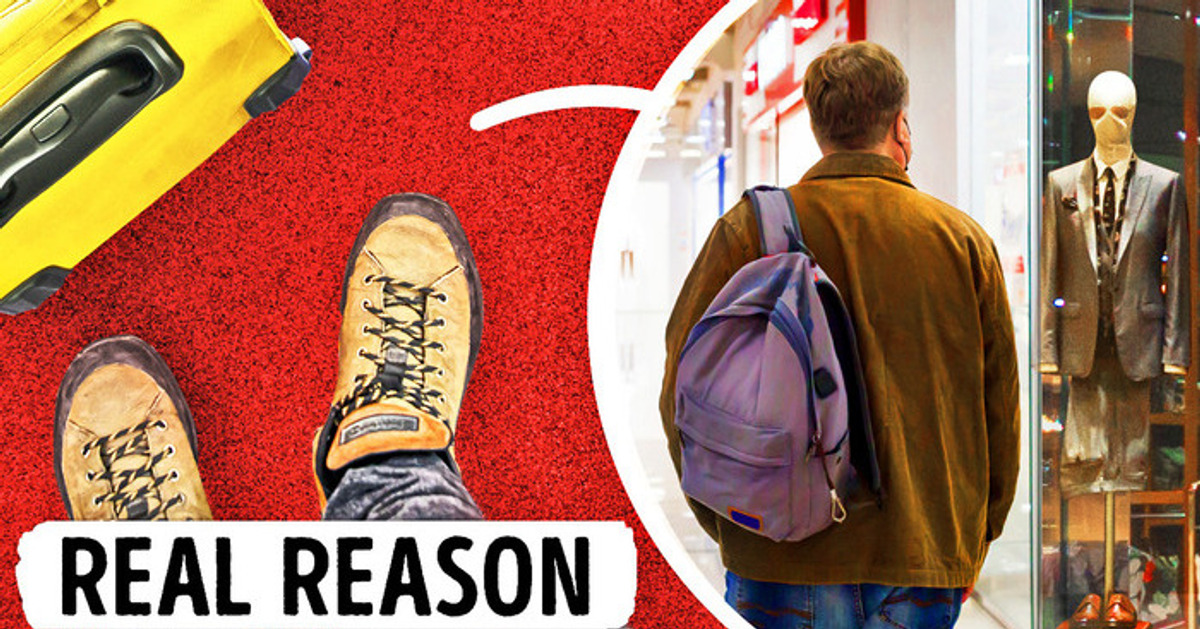
Many airports have carpets in their gate areas. This nicety usually comes with a few other perks: lower ceilings, comfortable seats, and pleasant, natural lighting. All this costs more for airports, and carpets are not as easy to clean as hard floors are, but they create a cozy feeling for passengers waiting for their flight, making them more relaxed.
Still, it isn’t just a gesture of goodwill on the part of airports: according to social research, calm passengers are about 7-10% more likely to go window shopping and actually buy something in the lounge area or duty-free zone. So by investing in the passengers’ comfort, airports actually increase their own income.
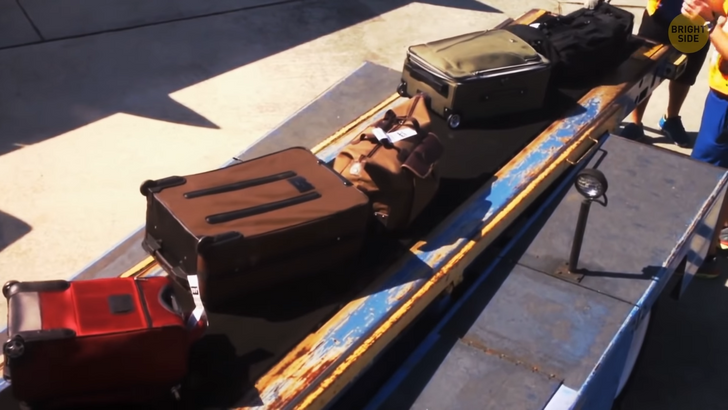
If you ever wanted to know what happens to your baggage while you’re on board a plane, the short answer is that airport staff don’t know once it leaves their territory, and they probably don’t really care, sorry. Baggage is sorted automatically: scanners scan the barcode and sort the baggage according to its destination.
The three main tasks of airport baggage handlers are to move your bags from the check-in area to the gate; to move them from one gate to another when you have a connection, and to move your bags from the plane to the baggage-claim area. And that’s it!
So if your luggage doesn’t move fast enough, it can be late for your connecting flight. Or, the exact opposite, your bag gets to your destination before you do because you’re stuck at passport control. Another problem can arise if you forget to tear off any old stickers showing a different destination. In this case, the scanner might send your luggage to the wrong country!

Most airports are equipped with giant kitchens where the food for passengers is prepared. These kitchens usually cook food for different airlines at once. And since that oh-so-delightful airplane food must be cooked about 6–10 hours in advance, these kitchens have to work 24/7!
And however surprising it might sound, the menu for your flight is developed up to a year in advance! This is a common practice for most airlines because every single ingredient matters and adds to expenses. In fact, one airline managed to save $40,000 after they removed just one olive from every salad they served on their flights!
Airport staff sometimes ask passengers to rub their hands on a piece of cloth before putting it into a special machine. It might seem kind of scary, but it’s actually harmless. You’re simply being checked by a machine called an atomizer. Before their working day starts, employees put samples of dangerous chemicals into the machine. The machine “memorizes” these smells, and in case a person’s hands smell like those chemicals, it alerts airport staff to this danger.
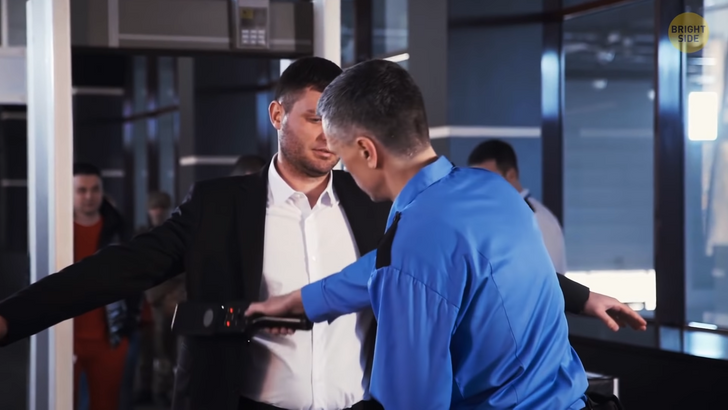
You know how it sometimes goes: you come to the security checkpoint, and suddenly, it turns out you have something prohibited to take on board in your carry-on. But don’t worry — all the things seized during the pre-flight inspection can be stored at the airport for as long as 3 months. On top of that, you have an opportunity to mail them to any address inside the country. Things taken away by security and weren’t claimed can also get sold at special auctions and are delivered worldwide!
If you have a long layover between flights, going to the nearest hotel to rest might not be the cheapest option. There’s a much better trick: check if the airport or airline sells 24-hour access to the VIP lounge zone. In most cases, you can have free snacks and drinks there, and use free shower cabins and rooms for rest at a very affordable price!
In multi-terminal airports, search for underground passageways connecting terminals that most people might not know about. For example, at Frankfurt Airport in Germany, there’s a walking tunnel between Terminal 1 and Terminal 2 that’s mostly used by employees since passengers are simply unaware of its existence.

There’s an actual term for the first 60 minutes after you clear check-in: the “golden hour.” It’s the time that passengers statistically spend more money in retail and duty-free areas of the airport. And having the most comfortable seats in those areas right in front of the shops is a clever trick to lure you in for shopping. Let’s admit, sitting in a comfy chair while looking at a flashy sign or shopping window can be tempting, and that’s exactly what the airports want you to feel.
If your flight is overbooked, and you can’t fly at the designated time, don’t hurry to accept the first voucher you’re offered as an apology. Normally, airlines keep raising the stakes until they have enough volunteers to give up their flight seats. And if they don’t, and you’ve been bumped involuntarily, you can insist on a cash refund instead. Depending on your ticket price and the time of your delay, you might be entitled to as much as $1,300.
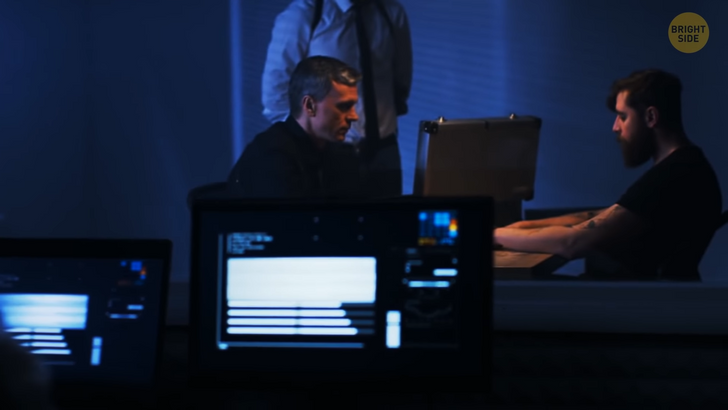
Most airports have specific experts called profilers. These people practice what’s called SPOT, or the Screening Passengers by Observation Technique. They carefully analyze facial expressions, gestures, and behavior in order to detect suspicious people.
Their job is to notice the non-verbal signs of anxiety, such as people licking their lips, itching, or looking around a lot. If a profiler notices a person acting in a weird or “off” way, they can invite them for an inspection, where they talk to the person to try to find out more about them.
Profilers work in both the main halls and passport control. The typical question they ask is, “What’s the purpose of your visit?” They then check the person’s reaction to this inquiry. No matter how reserved a passenger is, if they have something to hide, TSA officers will find out thanks to the tiniest cues in people’s behavior.
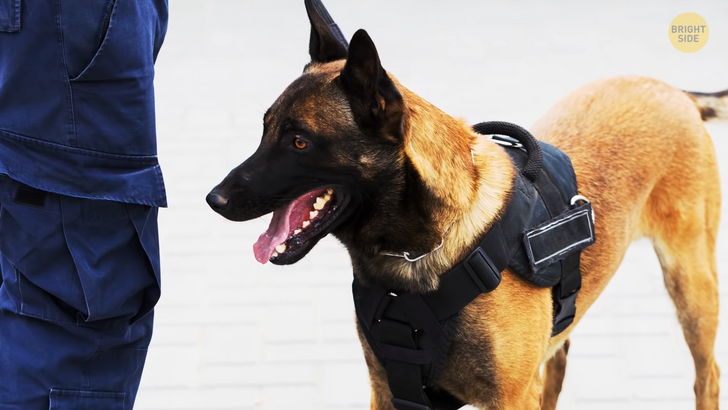
Before your luggage even gets on the plane, it goes through five security levels, and one of them (besides scanning the contents) includes being checked by a special dog that can sniff out dangerous chemicals. It’s a well-known fact that a dog’s nose is much stronger than that of any human. In fact, dogs distinguish smells from 10,000 to 100,000 times better than people do. No wonder airports take advantage of this super-sense for security and regularly use these “sniffer dogs” to detect suspicious substances.
What’s really cool is that you can’t even distinguish a detection dog from its “civilian” siblings. Unlike police dogs, the ones working at airports aren’t trained to frighten or intimidate people. The most popular sniffer breeds are Golden Retrievers, Labs, and German Shorthaired Pointers.
Charging your phone at a specially designated spot can look convenient, but it’s not really safe. If the charging station only allows you to plug in your cord, you might get malware installed on your phone with you none the wiser. The only safe way to charge your phone or tablet is to find an electric socket and use it with your own charger.
The same goes for free airport Wi-Fi. Apart from the airports requiring you to authenticate yourself more often than not, someone can easily access your data while you’re using an unprotected Wi-Fi hotspot. It’s safer to use your mobile data, but if you absolutely have to use the airport’s Wi-Fi, best clear or encrypt all your important information on your device.
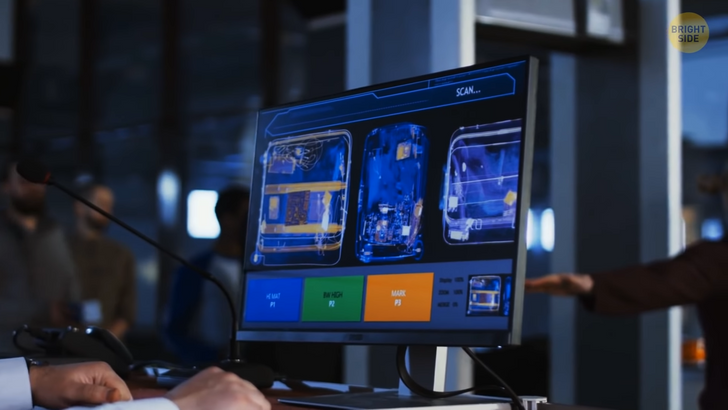
It might be exasperating to take your laptop out of your carry-on at the security check every single time. But the airport staff need to have a clear look at your device to make sure nothing is concealed inside. On the screen of an X-ray scanner, a laptop looks like a semitransparent object, with a clearly visible hard drive, CD drive, and whatnot. But security officers can’t see what’s behind some of those parts, for example, a dense and rather large battery.
People tend to choose the closest security line to them. If that line turns out to be super crowded, just look around after ID and ticket check. You may see another checkpoint with much fewer people. Some checkpoints at the airport are situated at the far edges of the terminal and that’s why passengers fail to notice them.
Applying for TSA Pre-check can be a great time-saver for traveling in and out of the U.S. Being a member of this program has some great perks. First, getting through security and passport control happens faster. If you’re a Pre-check traveler, you won’t have to take off your shoes or remove a belt. And forget about placing your stuff like liquids and laptops in special bins. If you aren’t flying to or from the US, then you can look up similar services available in your country.
If you’re flying economy class but don’t like it (who does?), check in online and check out the seating options about 4 days before your flight. It’s about that time that airlines typically start upgrading seats, and you might get an upgrade to business class for a small fee or sometimes even for free! You can also ask for an upgrade when you’re already at the airport — most people forget about this opportunity or simply don’t care, so you might just get lucky.











